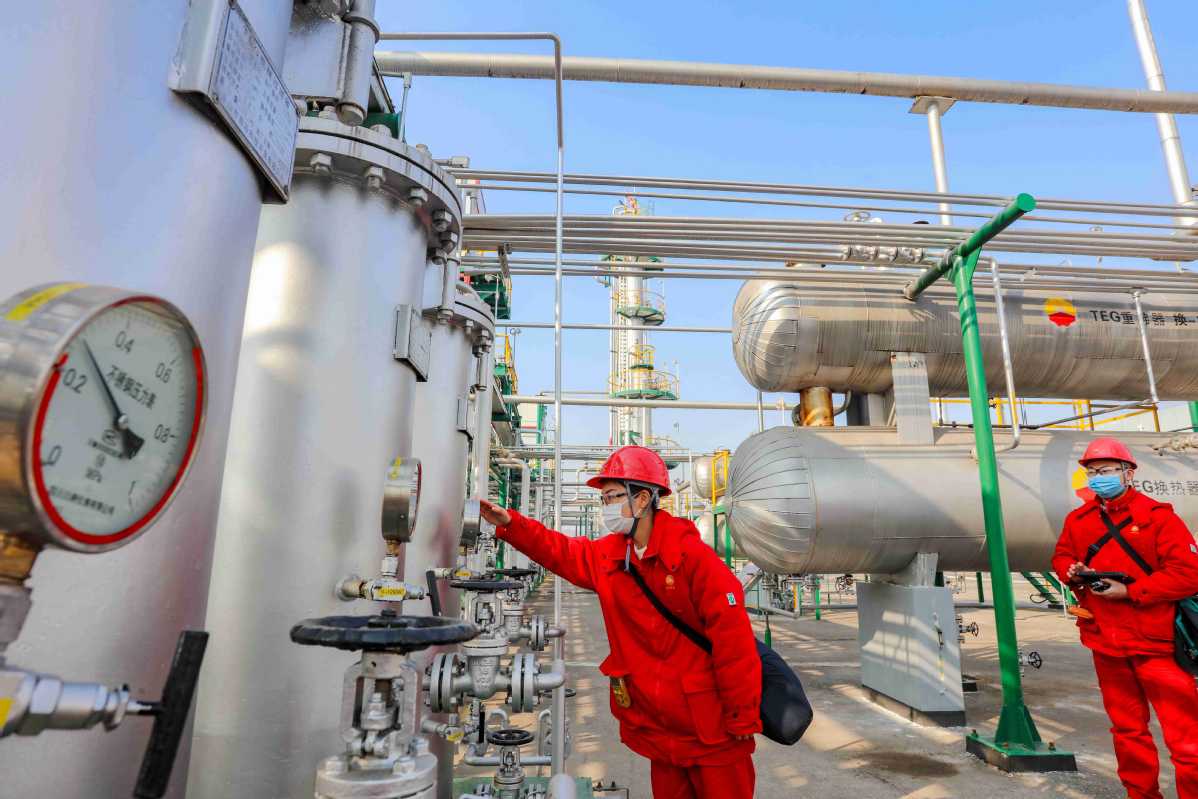Refineries 'in need of shift' on biz mode
By ZHENG XIN | China Daily | Updated: 2022-09-28 09:11

Amid world's green transition, experts highlight petrochemical production
With the rapid development of new energy vehicles and decreasing demand for petroleum products in China, refineries in the country should further evolve to make less gasoline and diesel but put more focus on petrochemical feedstocks, said analysts.
As the world's energy transition is soon to result in a peak in the use of oil-based fuels followed by a decline, lower overall demand and less need for refining capacity are expected and the refining capacity in China must evolve to match a shift in product mix to meet petrochemical demand, said Sun Lei, an analyst with Wood Mackenzie, a consultancy, during the 2022 Honeywell Sustainability Summit in Changsha, Hunan province, earlier this month.
With ever-growing sales of new energy vehicles and a possible transportation fuel consumption peak by 2026, there is already a surplus of capacity for gasoline and diesel. Refineries in the country are in need of a shift of their production focus from petroleum, which sees higher yields but lower profit rates and higher carbon emissions, to petrochemicals, to achieve growth in a more sustainable way, he said.
According to the Blue Book on the Development of China's Petroleum Circulation Industry 2021-2022, China saw its production of refined oil products reach 357 million metric tons in 2021 and total consumption of only 320 million tons, leaving a gap of 37 million tons.
Against the backdrop of the goals of reaching a carbon peak by 2030 and carbon neutrality by 2060, the country's refined oil products also witnessed a decline in exports, which makes the transition of China's refineries necessary and immediate, it said.
According to a report by Wood Mackenzie, gasoline will experience the greatest impact because it is primarily used for light-duty passenger vehicles and the market for these vehicles is shifting toward electric.
In contrast, demand for petrochemical feedstocks will continue to grow. The major oil-derived petrochemical feedstocks are ethane, liquid petroleum gas (LPG), and naphtha. These are primarily used in the production of polymers for plastics, synthetic fibers and other petrochemical intermediates. Demand for these products will continue to grow with rising global wealth, it said.
According to Jinn Wang, business director of Honeywell UOP, with an overall excess production capacity in the refining sector in China, refineries must update plant configuration to shift from transportation fuel production to more petrochemical production.
In the meantime, refineries must operate plants more efficiently and lower carbon emissions to improve competitiveness, he said.
Wang believes refineries in China will further lift their percentage of chemical products, with the average conversion rate of crude oil to petrochemical products to reach 20 percent to 40 percent by 2025 and 40 percent to 60 percent by 2030.
There is plenty of room for demand for chemicals in China, he said.
Some refineries in China are already looking for opportunities to adjust or modify their production models to capture the growing demand for petrochemicals.
China's recently commissioned Hengli Petrochemical refinery, for example, can generate more than 40 percent petrochemical feedstock yield compared with about 10 percent yield for most refineries. Hengli has the capacity for 4.3 million tons of paraxylene per year. Refineries near big markets will therefore have the strongest value proposition, said Wood Mackenzie.
Henry Liu, vice-president and general manager of Honeywell Performance Materials and Technologies Asia-Pacific, said while the refinery sector faces challenges in carbon reduction, it is also embracing massive opportunities from the industrial upgrading and green transition.
The key is to lift efficiency and reduce energy consumption, he said.
"Sustainability technology is pivotal to low-carbon transition and long-term growth for enterprises and a critical instrument for China to achieve its carbon reduction goals," Liu said.
"Honeywell has long been committed to advancing its own sustainable development while researching and promoting sustainability solutions in China."
























